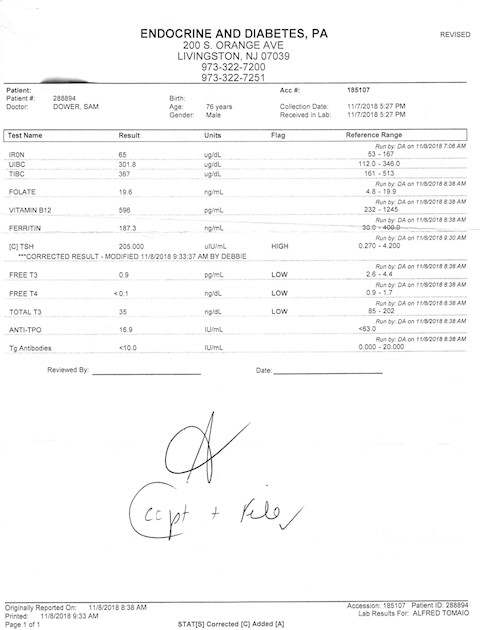74 year old male
history of quadruple bypass, stents, arythmia, and a defibrillator in his chest...
He was put on Amioderone to control heart rythm a couple years ago. And even though this drug is known to cause thyroid issues and patients on it are supposed to be monitored, somehow his Thyroid was never monitored until he hit rock bottom (falling asleep mid sentence). (Malpractice???)
I sent him in to a congestive heart failure Dr because he has abnormal leg swelling, fatigue etc. this doctor finally decided to look at his TSH, which was over 200, and they thought it was a lab error, but it was not. I have attached a copy of the lab.
He is
Free T3 0.9
Free T4 <0.1
Total T3 35
He also has anemia:
REsults: Refrence Range
RBC 2.93 4.50-5.90 million/mcL
Hgb 9.0 13.5-17.0 gm/dL
Hct 27.4 % 39.8% - 52.0%
They want to do a cardiac cath but his Kidneys are very bad...
ANy thoughts or suggestions would be appreciated!!!


